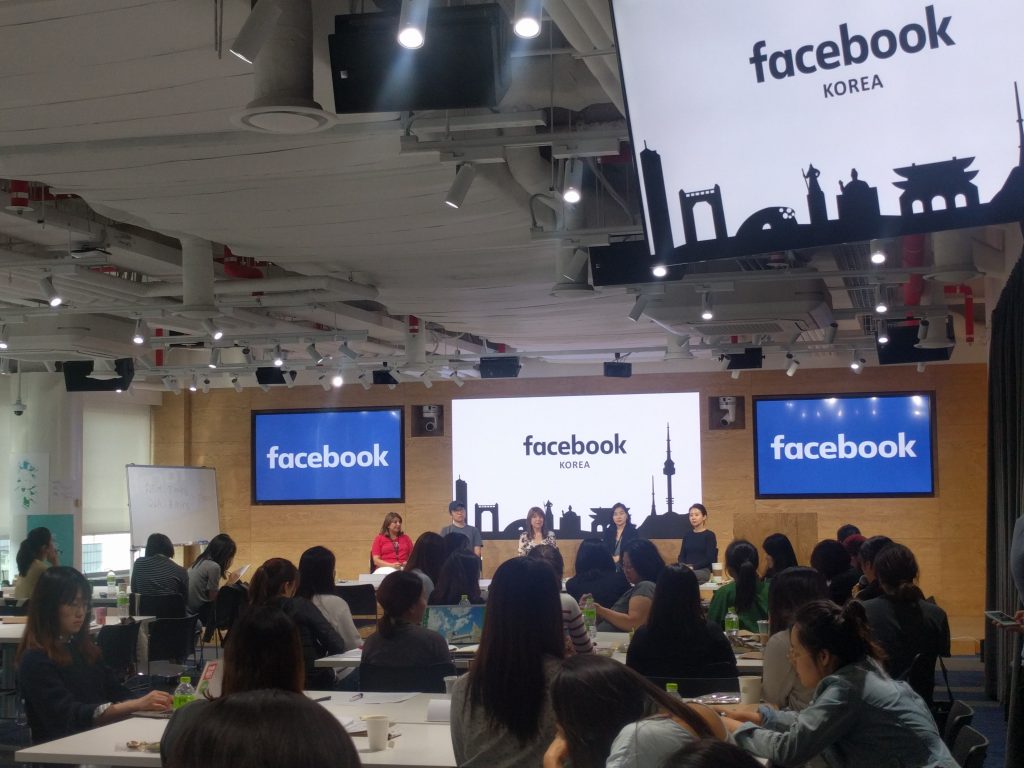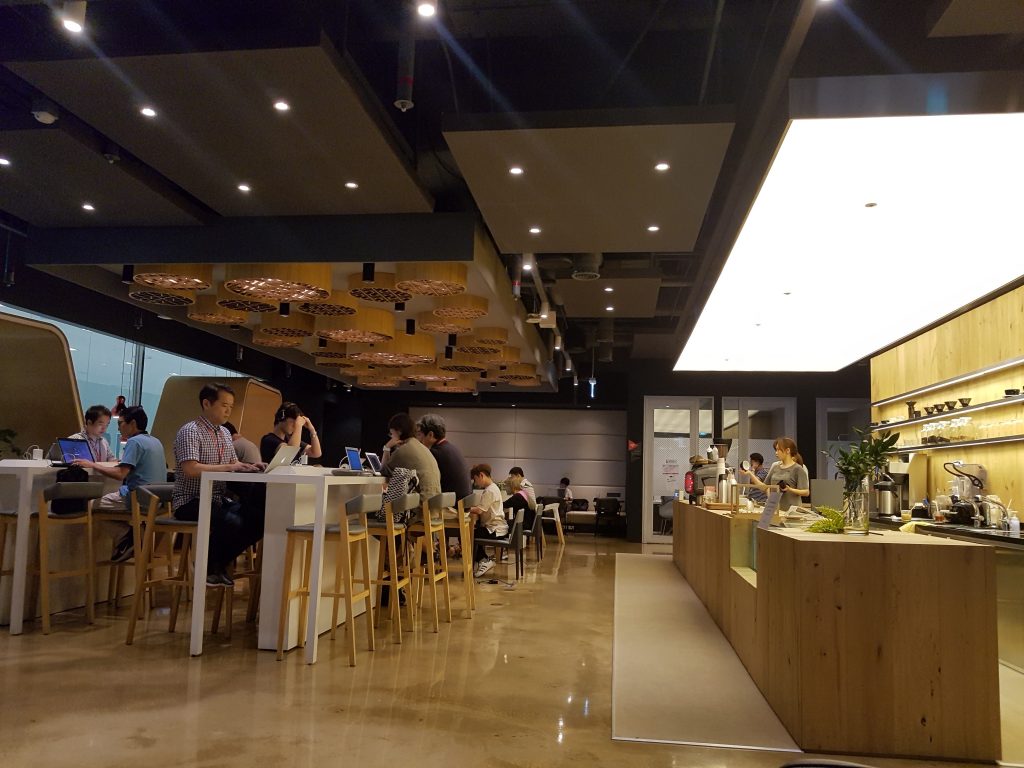Access to the latest Korean startup news and startup database for free

#Weekly Funding Overview
[Dec. 28~ Dec. 31]The total funds raised by Korean startups of this week is KRW 44.8billion.
| Company | Inudustry | Amount | Round | Investors |
|---|---|---|---|---|
| Hashbrand | Consumer | - | Seed | Korea Venture Investment, Yozma Korea |
| 24.5 | Consumer | 150 million | Seed | |
| DevStack | Software | - | Pre-Series A | Namu technology |
| Biteme | Pettech | 1.5 billion | Mirae Asset Venture Investment, Aju IB Investment, ES Investor, SCHMIDT | |
| Medintech | healthcare | - | Seed | Futureplay |
| Routinery | healthcare | - | Seed | Digital Healthcare Partners, The Invention Lab |
| Bluemedi&techware | Bio/Healthcare | 4 billion | Series A | DONGHOON Investment, Kolon Investment, K2 Investment Partners, KAIC |
| Thevita | Bio/Healthcare | 4 billion | Gibiome | |
| BERTIS | Bio/Healthcare | 16 billion | Smilegate Investment, NH INVESTMENT & SECURITIES, Premier Partners, Kclavis Investment, Meritz, BNH INVESTMENT | |
| Adoba | MCN | 1 billion | Pre-Series A | Laguna Investment, UNION Investment patners |
| Fairsquarelabs | Ecommerce | - | Quad Ventures | |
| LetinAR | AR | 8 billion | Series B | Naver D2SF, KDB Capital |
| HayanMind | Education | - | Seed | JB Ventures |
| CALAB | Manufacture | 3.5 billion | Pre-Series A | Busan Technology Holdings, Series Ventures |
| DN Korea | Real estate/Proptech | 4.5 billion | Seed | MetaProp, Goodwater Capital, Flybridge |
| Studypie | Education | 2.15 billion | Pre-Series A | Altos Ventures, Qualson |
Major Funding
- LetinAR, a startup developing optical solution for AR glasses, has closed a KRW 8 billion series B funding from NaverD2SF and KDB Capital. LetinAR developed AR glasses that have clear optics with ‘pin mirrors’ embedded in it. With LetinAR PinMR™ lens, smart glasses manufacturers can build smart glasses worn like a pair of conventional glasses.
- DN Korea, the developer of residential real estate brokerage platform called Dongnae(neighborhood) has raised KRW 4.5billion from MetaProp, Flybridge, Goodwater capital. Dongnae is an AI based real estate marketplace that allows users to search and find a house easily. It was founded by Matthew Shampine, a former managing director of Wework APAC. Currently, Dongnae provides untact services such as video tours and real-time online open houses.LetinAR, a startup developing optical solution for AR glasses, has closed a KRW 8 billion series B funding from NaverD2SF and KDB Capital. LetinAR developed AR glasses that have clear optics with ‘pin mirrors’ embedded in it. With LetinAR PinMR™ lens, smart glasses manufacturers can build smart glasses worn like a pair of conventional glasses.
- Thevita, a healthcare platform, raised strategic funding of KRW 4 billion from Gibiome. Founded in 2018, the company uses AI technology to analyze personal medical data, genome data and lifestyle data from mobile devices. The new funding will be used for hiring and developing microbiome technology with Gibiome.
- Studypie, an online education platform has raised a KRW 2.15billion Pre-Series A from Qualson, Altos Ventures and Angel investors. Studypie has been an online class platform that allows students to learn skills that were never learned at school. Studypie will partner with Qualson, an English learning platform, to create more classes and plans to increase the number of educational products to more than 100 by 2021.
More Funding
- Biteme, a pet product and food online commerce, has raised KRW 1.5 billion from Mirae Asset Venture Investment, Aju IB Investment, ES Investor, and Schmidt. Biteme is selling about 200 of its own PB (Private Brand) including pet toys, clothing, food, and hygiene products. Biteme plans to use this funding to expand its business to a comprehensive pet-fluencer commerce platform.
- Adoba, a Chinese cross-border MCN company, secured KRW 1 billion. Adoba, is pioneering the market for content creators who want to enter the Chinese video platform market where youtube is banned.
Undisclosed Funding
- Hayanmind, which runs RedWiki, an English learning platform taught by native speakers, raised seed funding from JB Ventures.
- Fair Square Commerce (FSC), an e-commerce company specializing in digital products, raised seed investment from Quad Ventures.
- Loutinery, a platform that encourages habit formation and behavior change, secured seed funding from Digital Healthcare Partners and The Invention Lab.
- Mediintec raised seed funding for its endoscope systems from futureplay.
- Hashbrand, which operates ‘My Used Luxury Price and Sale’ Service Resell Ground, has attracted seed investment from Korea Venture Investment and Yozma Group Korea.
- DeVstock, Openstack-based cloud company, raised seed funding from Namu Technology.
#Trend Analysis
Why Korean startups become attractive to foreign accelerators

There has been a progressive increase in the number of global accelerators and corporations that aspire to cooperate with South Korean startups lately. In the past, it was the norm for accelerators and corporations to visit Korea to observe the market trends, whereas now, their approach to participating is significantly proactive. Additionally, the popular opinion is that these accelerators and corporations speak highly of technology and growth potentials in korean startups.
Global accelerators and overseas companies have started coming into Korean market since 2015. Silicon Valley accelerator 500 startups launched a KRW 15 billion Korean focused fund called 500 Kimchi in 2015 to connect deeper relationships with korean startup ecosystem. Tim chae, a Korean American entrepreneur has been managing the fund, investing in over 43 korean startups as of this date. The accelerator started its first seed program last year, aiming at finding future Korean unicorns. In the same year, Google launched its first Asian Google Campus in Seoul Korea.
Facebook developed its first Namsan Lab Korea program for early stage startups partnering with Asan Nanum foundation in 2018. It offers various services ranging from mentoring, networking to connecting VC for potential investment. One year later, Facebook has officially launched a 20 week facebook accelerator in seoul. This year, TechStars has launched a program and had its first demo-day in Korea. Startup Autobahn operated by Daimler also selected 5 Korean startups recently and held an EXPO Day disclosing the progress of 100 days of partnership with Benz. Starting from 2017, Startup Autobahn were directly involved in setting up the groundwork in building a startup program in Korea, they held a startup hackathon in 2019 to validate the possibility. In 2020 they successfully launched the program in Korea, becoming their 7th program in the world.

One notable thing is that many have entered Korean markets with support from the Korean government. A multitude of accelerators and corporations have experienced the domestic startup system ahead of time through invitations from the government. In fact, prominent startup support organizations like the Ministry of SMEs, Startups and Korea Institute of Startup & Entrepreneurship Development, and theSeoul Business Agency support the globalization of domestic startups. However, the main reason why foreign global organizations wish to interact with Korea startups is because of the potential domestic startups hold with high-end technology, which is likely to excel in global markets. The fundamental objective is to achieve commercialization of Korean technology through open innovation by uncovering startup companies with high potential but lacking global networks.
A positive reputation for Korean startups is also developing in the Asian market.
“As foreign organizations increasingly seek an opportunity in the Asian market due to its growing economy and influence, Korea is an intriguing choice for a start in the market, because the startup system is mature and the business environment and regulations are relatively well organized compared to other Asian countries.” said Changsung Ho, CEO of The Ventures. “Due to the increasing number of Korean startups targeting the global market, the environment to receive help from global accelerators is being generated in South Korea.” added Ho.
Yet, some criticized that these types of interests do not guarantee substantial investments. Ivan Lopez, head of APAC Techstars stated, “Although it had been difficult to invest in Korean startup companies due to complex documents and regulations, recent financial policy amendments that took place this year(2020) made foreign investments much more accessible.” He also noted that, “There will be an increase in Korean startup investments.”
MORE NEWS

- Delivery Hero (DH) is selling Yogiyo to take over Woowa brother’s BAEMIN. DH had accepted the request from the Fair Trade Commission that in order to take over BAEMIN, they would have to sell Yogiyo. This is because of the concern that taking over two companies by one organization may lead to a monopoly in the delivery industry. On December 13thof last year, Delivery Hero submitted an M&A notification after deciding to take over BAEMIN for KRW 400 billion (88% share of Woowa Brothers, Corp.) This acquisition is recorded as the largest in scale in domestic startup history.


![[StartupRecipe] 3 Signs Korea’s Startup Funding is Back](https://en.startuprecipe.co.kr/wp-content/uploads/2026/03/260301_car-racing_ai_05032055-200x140.jpg)
![[StartupRecipe] South Korea Reaches 27 Unicorns](https://en.startuprecipe.co.kr/wp-content/uploads/2025/04/250420_unicorn_ai_00001-200x140.jpg)
![[StartupRecipe] South Korea’s Startup Investment Landscape 2025: 10 Key Findings](https://en.startuprecipe.co.kr/wp-content/uploads/2026/02/260208_One-page-briefing_ai_00002-200x140.jpg)
![[StartupRecipe] Physical AI Tops Korean VC Investor Preferences in 2026](https://en.startuprecipe.co.kr/wp-content/uploads/2026/02/260129_Startuprecipe-Investment-Report-_00001-200x140.jpg)
![[StartupRecipe] How Korea’s 10 Early-Stage Investors Performed in 2025](https://en.startuprecipe.co.kr/wp-content/uploads/2026/01/260120_car-racing-desert_ai_5002305-200x140.jpg)
![[StartupRecipe] 85% of Korean Students Use AI, Few Know AI Startups](https://en.startuprecipe.co.kr/wp-content/uploads/2026/01/260118_seoul_ai_00305035523-1-200x140.jpg)